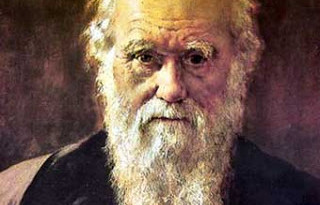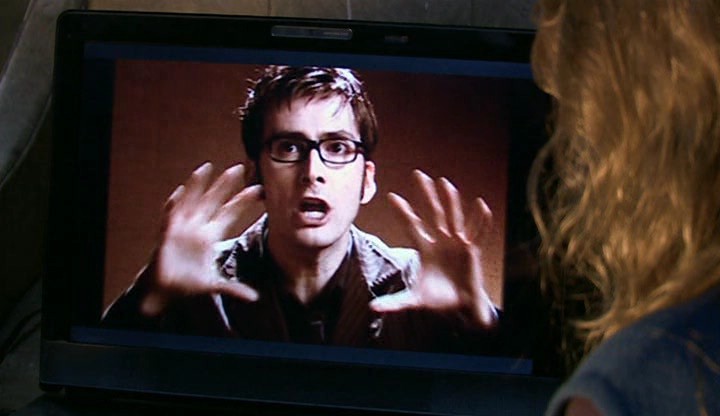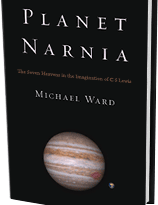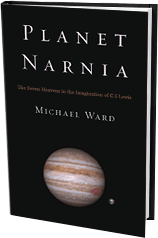If you’re not a Christian, or haven’t encountered Creationism before, the idea that the universe was in fact created by God in six days around 6000 years ago probably strikes you just as mad as believing that the Earth is flat.
Richard Dawkins finds Creationism incomprehensible. In his review of Blueprints Solving the Mystery of Evolution by Maitland A. Edey and Donald C. Johanson, he says of Creationism:
You might as well claim equal time in sex education classes for the stork theory. It is absolutely safe to say that if you meet somebody who claims not to believe in evolution, that person is ignorant, stupid or insane (or wicked, but I’d rather not consider that).
But I’ve personally met Creationists who are well-informed, intelligent and sane, and good people to boot too (and I don’t mean they need a kicking!) Richard Dawkins might insist that they don’t exist, but I could introduce you to such people, and some of them are probably among the readers of my blog.
Many Creationists know more about evolutionary science than your average man on the street, who accepts evolution because that’s what his science teacher taught and David Attenborough says. There are Creationists who are bright, intelligent people, who’ve got degrees and PhDs and the like. There must be more going on that just ignorance or stupidity.
So how can intelligent people come to such a radically different understanding of the world around us? The key issue is that of starting points, or presuppositions.
What are presuppositions?
We all depend on certain assumptions or axioms that we normally take for granted. These presuppositions are starting points; we accept them not because we can necessarily prove them in advance by reason or evidence, but because we need to trust something outside of us (to have faith, in an epistemological sense) to give us a base from which we can interpret evidence and apply reason.
The necessity of presuppositions
There is no neutral knowledge. We always work from within an existing perspective, or way of viewing the world. It isn’t humanly possible to step outside our culture, influences and modes of thought to become a neutral observer.
Anyone who claims that their position is “neutral”, whether a Creationist claiming that they don’t interpret the Bible, but “simply accept the plain truths of scripture”, or the an atheist claiming that they “simply accept what a rational study of the scientific data shows us”, has implicit assumptions. They are either suppressing these assumptions, or more likely are just plain unaware of them.
Two basic everyday examples of presuppositions are, firstly, the faith that what we receive through our senses bears some kind of relation to external reality (if not necessarily a perfect one), and secondly, the faith that we are able to make logical deductions and that these workings of our mind also have some kind of relation to reality (again, not necessarily a perfect one, but there’s some kind of connection).
You can’t prove these presuppositions without actually using your senses and your thoughts, which is only valid if you have faith, at least provisionally, that they work. But if you work from these presuppositions, you will find that your trust is proved by experience to be well-placed. The external world is indeed really there, and you are able to come to true conclusions by applying your reason.
The rationality of presuppositions
But is belief in presuppositions rationally justified? Yes, because accepting presuppositions as a starting point is not a matter of blind faith, but of “faith seeking understanding”. We believe in order to understand, in order to have a framework of thought that makes possible further investigation.
But while it’s rationally justified to make certain assumptions to give you a framework from which to reason and to examine the world, it’s then necessary to examine those assumptions. Presuppositions become blind faith if we refuse to reconsider them in the light of other competing presuppositions, and in the light of new evidence and arguments that don’t fit with our existing frameworks.
The question becomes not whether presuppositions are rational, but which presuppositions are rational. With careful thought and hard work, it is possible to become aware of your presuppositions and to examine them, and to examine the implications of other sets of presuppositions. By really engaging with different points of view, it’s possible to at least partially “try on” other perspectives, other worldviews, and to compare which best explains and gives shape to all our knowledge and experience.
The power of presuppositions
Our starting points, our presuppositions, radically shape or distort our view of reality. In the case of creation and evolution, it makes billions of years of difference! This explains how people can look at the same evidence, and come to such vastly different conclusions, without being stupid, ignorant or insane. Indeed, just being clever can be a handicap, because you’ll be better at explaining away any evidence that doesn’t fit your presuppositions. You can be the cleverest person in the world, but if you start from false assumptions, you’ll still get the wrong answer.
Testing our presuppositions
This shows the vital importance of becoming aware of our presuppositions, and trying to examine them critically. It’s only when we begin this process that we can really have a chance of making a fair and reasoned choice between different perspectives. But such an examination of underlying presuppositions is rare, for people of all beliefs.
In my next blog post, I’ll try and uncover and examine the different assumptions underlying different specific positions on evolution and origins, such as creationist, theistic evolutionist and materialist assumptions.









 A couple of months ago, I went to Time Travel in Television Drama, a event put on by BAFTA Cymru. One of the people on the panel was Steven Moffat, who is taking over from Russell T Davies as the showrunner on Doctor Who.
A couple of months ago, I went to Time Travel in Television Drama, a event put on by BAFTA Cymru. One of the people on the panel was Steven Moffat, who is taking over from Russell T Davies as the showrunner on Doctor Who.
 In the same way that having two eyes allows us to see depth, or five speakers allows for immersive surround sound, so can these different views enhance each other, even when we don’t have all the information to see exactly how they fit together. But this doesn’t mean that any view goes, that every perspective is as good as any other. The Early Church recognised the four canonical Gospels as authentic and inspired, but rejected other writings, such as the so-called Gospel of Thomas, which is Gnostic in outlook and contains such gems as the following:
In the same way that having two eyes allows us to see depth, or five speakers allows for immersive surround sound, so can these different views enhance each other, even when we don’t have all the information to see exactly how they fit together. But this doesn’t mean that any view goes, that every perspective is as good as any other. The Early Church recognised the four canonical Gospels as authentic and inspired, but rejected other writings, such as the so-called Gospel of Thomas, which is Gnostic in outlook and contains such gems as the following:
 I received the book
I received the book